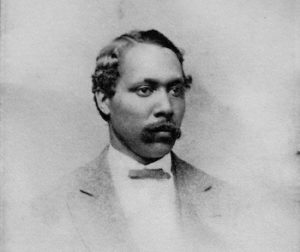
Ebenezer Bassett
Ebenezer Bassett was born on this date in 1833. He was a Black educator, abolitionist, and diplomat.
Ebenezer Don Carlos Bassett was born in Litchfield, CT, he was also Native American (Pequot). Bassett was the second child of Eben Tobias and Susan Gregory. In a rarity during the mid-1800s, Bassett attended college, becoming the first black student to integrate into the Connecticut Normal School in 1853. He then taught in New Haven, befriending abolitionist Frederick Douglass.
Later, he became the principal of Philadelphia, Pennsylvania’s Institute for Colored Youth (ICY). During the Civil War, Bassett became one of the city’s leading voices into the cause behind that conflict, the liberation of four million Black slaves, and helped recruit Black soldiers for the Union Army. In 1869, he was appointed U.S. Minister Resident to Haiti, making him the first African American diplomat. For eight years, the educator, abolitionist, and African American rights activist oversaw bilateral relations through bloody civil warfare and coups d"état on the island of Hispaniola. Bassett served with distinction, courage, and integrity in one of his most crucial but difficult postings.
In nominating Bassett to become Minister Resident to Haiti, President Ulysses S. Grant made him one of the highest-ranking African American members of the United States government. During his tenure, the American Minister Resident also dealt with citizen commercial claims, diplomatic immunity for his consular and commercial agents, hurricanes, fires, and numerous tropical diseases.
Ebenezer Bassett died in 1908, and his burial was in Grove Street Cemetery in New Haven, Connecticut.
Library of Congress
101 Independence Avenue S.E.
Washington D.C. 20540